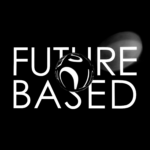Why can’t capitalism and underground scenes work productively together?
It is a depressing trope: but a marriage of capitalist ideas and underground ideologies is one that is often doomed to failure. Despite the best intentions, often from both sides, everyday commercial activities eventually kill the very thing they seek to support.
The normal understanding of the term ‘capitalism’ is a wide one, covering almost all forms of commercial activity. The broad nature of the term offers some hope. Are there, outside of the hidebound notion of the relentless pursuit of profit, areas that allow insight or cooperation? Can we glimpse of the nature of capitalism through discussion? Or do we have to live it, in order to get a grasp? One thing is certain: underground artists have a lot of faith in their community. Creativity is often driven by the imagination, rather than production, and process and transcendence rather than a fixed identity.
Underlying discussion:
What is ‘underground’? The underground scene may often communicate typical associative thinking about political statements, freedom of imagination, sincerity, and artistic identity. Instead of changing systems of commercial exploitation, underground scenes create an alternative reality, a counter movement to the mainstream. But the aversion towards the mainstream has a rather paradoxical side-effect; an interdependence of the underground scene with the mainstream mass culture. Because without mainstream, there won’t be a counterculture. So how are the underground and mainstream worlds interconnected? How does this dependence play out? Can rich sounds, forward-thinking music lovers and DIY activities heavily rooted in local communities survive outside of their own backyards?
Speakers:
Theo Ploeg will give a historical perspective on modern underground movements and argue that there is a new kind of underground culture emerging, that is not against but simply ignoring the mainstream.
Lula Valletta and Leonor Faber-Jonker collaborate on against-the-grain zines in limited, riso-printed editions. During this meetup they will present their Underground Manifesto. A visceral homage to the misfit, the punk, and the outcast, the Dadaist and the Dandy, the Manifesto lays out the rules of no-rules, sifting through the dirt of the underground, rooting for worms, and throwing uppercuts.
Biographies:
Leonor Faber-Jonker is an author, researcher and visual artist. Her work is characterized by a fascination for the relationships between materiality, memory and meaning. Leonor has published on, among other things, the counterculture of the 1980s, the Rotterdam underground and (African) colonial history. She was previously active as a DIY concert organizer, among other things. Leonor Faber-Jonker lives and works in Rotterdam.
Lula Valletta is a cut-up and art-book-bibliophile. Being a freelance artists and curator, desperate of being born about 75 years too late, she tries to pick up where the hobbyhorses of the avant-garde left of; rejecting logic, reason and aestheticism of modern capitalist society, instead expressing nonsense, irrationality and anti-bourgeoise protest. ‘Life is a cut-up’. These wise words by William Burroughs, are her mantra that she tends to live by, armed with scissors and glue.
Theo Ploeg investigates the theory and praxis of living in an accelerating world at Studio Hyperspace. He is ambassador of speculative design at Digital Society School , and co-founder of FRNKFRT. Theo researches, writes and teaches; he finds beauty in the troublesome and tense times that the 21th century poses and has made it his mission to let everybody know.
